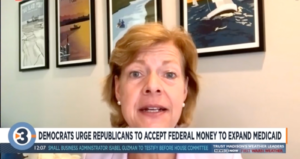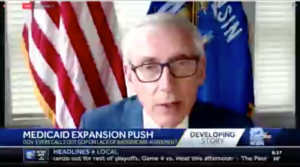U.S. Representatives Tim Ryan (D-OH-17), Susan Wild (D-PA-07), and Chris Pappas (D-NH-01) Headlined Events in Ohio, Pennsylvania, and New Hampshire
This week, Protect Our Care hosted events featuring U.S. Representatives Tim Ryan (D-OH-17), Susan Wild (D-PA-07), and Chris Pappas (D-NH-01) along with health care advocates to emphasize the impact of high prescription drug prices and to call for Congress to take action on this urgent issue. Advocates and lawmakers made clear the time to act is now to give Medicare the power to negotiate with drug companies for lower prices for all Americans.
The events are part of The Campaign to Reduce Drug Prices, Protect Our Care’s seven-figure campaign to demonstrate the urgent need for comprehensive legislation to lower drug prices. Protect Our Care will continue to host events both nationally and in 12 key states throughout the summer.
Highlights and Coverage From Protect Our Care’s Events:
NEW HAMPSHIRE
Wednesday, May 26, 2021 — Lower Rx Drug Costs Virtual Event with Rep. Chris Pappas and Advocates: Rep. Chris Pappas (D-NH-01), Eva Castillo with New Hampshire Alliance for Immigrants and Refugees, Lucy C. Hodder, Director of Health Law and Policy at UNH School of Law, and advocates joined Protect Our Care New Hampshire for a virtual press conference to call on Congress to take action to lower prescription drug costs for Americans. For too long the system has been tilted in favor of big drug companies, not profits. Rep. Chris Pappas said that pandemic has exacerbated issues for NH families, but that COVID relief legislation, making coverage more affordable. “We need more progress in Congress to reduce drug prices, on an unsustainable path. We pay more than any nation in the world for drugs. Folks are rationing, and cannot afford medication.” You can watch the event here.
Coverage:
WMUR (ABC Manchester): NH Advocates Fight for Lower Drug Prices

OHIO
Thursday, May 26, 2021 — Lower Rx Drug Costs Virtual Event with Rep. Tim Ryan and Advocates: Congressman Tim Ryan and local advocates joined Protect Our Care Ohio for a virtual press conference to call on Congress to take action to lower prescription drug costs for Americans. “It is common sense that if Medicare has millions and millions of people accessing pharmaceuticals, that they would be allowed to negotiative the drug prices on behalf of our seniors. This is the single cleanest, clearest way to give relief,” said Congressman Tim Ryan. “It would also put money into the economy — if instead of going to the prescription drug industry and big pharma, those dollars got out into the local economy.” Advocate Lourdes Barroso de Padilla discussed how the high cost of prescription drugs makes it harder for her sister to manage her diabetes. “She got a letter from her insurance company saying they were no longer going to pay for her insulin. People are making decisions about their lives. This should not be a Republican or Democratic issue, this is a human rights issue. The cost of prescription drugs should not put a family in crisis.” You can watch the event here.
Coverage:
WKSU (NPR Kent): Tim Ryan Calls on Congress to Pass Legislation to Lower Drug Prices
WNWO (NBC Toledo): Rep. Tim Ryan, Ohioans Call for Legislative Action to Lower Drug Costs
WNWO (NBC Toledo): Rep. Tim Ryan and Advocates Discuss Urgent need to Lower Rx Drug Costs

PENNSYLVANIA
Thursday, May 27, 2021 — Lower Rx Drug Costs Virtual Event with Rep. Susan Wild, PA Health Access Network, and Advocates: Representative Susan Wild, the Pennsylvania Health Access Network, local patients, and health care advocates joined Protect Our Care Pennsylvania for a roundtable discussion to call on Congress to take action to lower prescription drug costs for Americans. As a result of high drug costs, Pennsylvanians are forced to make decisions that are making them sicker. In the last year, 1 in 5 Pennsylvanians left their prescription at a pharmacy, cut pills in half, or skipped doses of medication due to cost. Rep. Susan Wild heard from constituents across her district struggling to afford their prescriptions due to high costs. “From parents of kids with diabetes and people dealing with chronic illness to families devastated by the pandemic – the message is the same: protect our care and help make it more affordable. It’s time to make H.R. 3 the law of the land and provide needed relief to the millions of Pennsylvanians struggling under the skyrocketing costs of prescription drugs,” Lee said. You can watch the event here.







